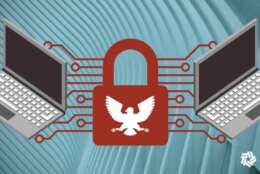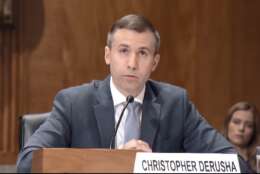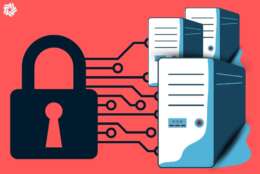Cybersecurity
-
CISA's new Protective DNS service will help defend agencies from a wide variety of cyber attacks, and the lead architect on the program wants to offer the capability to other enterprises.
October 03, 2022 -
Cryptocurrencies and other blockchain-based digital assets play an increasingly central role in financial markets. They’re also becoming a more frequent source of regulatory concern, as well as criminal activity.
September 30, 2022 -
Cyber resiliency? How’s that different than resiliency? For starters, the focus becomes the agency’s data, not merely continuity of operations. Why? Because data is what most bad actors go after, explains Veeam security expert Jeff Reichard.
September 27, 2022 -
Now more than a year past President Joe Biden’s Executive Order on Improving the Nation’s Cybersecurity, federal agencies are ramping up efforts to achieve its mandates, including building a zero trust architecture.
September 26, 2022 -
Chris DeRusha, the federal chief information security officer, said the focus on securing commercial software comes from the cyber executive order.
September 26, 2022 -
From industry to government agencies, the impacts of the Apache Log4j vulnerability have been felt globally. The U.S. public sector has become especially vulnerable due to the magnitude of applications within agencies’ networks, its lack of resources and funding, and its involvement in escalating foreign conflicts.
September 23, 2022 -
Granting access to, sharing and securing data in the cloud continues to challenge agencies across government. During this exclusive webinar, moderator Jason Miller will discuss cloud strategy, security and applications with agency and industry leaders.
September 23, 2022 -
The federal government is all in on a zero trust approach. Continued migration to the cloud; the move to mobile and bring-your-own-device; the convergence of IT, operational technology and Internet of Things; and the sharp increase in remote working due to the pandemic have changed how the government must approach cybersecurity.
September 22, 2022 -
Challenges still exist in securing critical infrastructure against cyber attacks.
September 22, 2022 -
During this exclusive webinar, moderator Jory Heckman and guest Tom Sasala, chief data officer with the Department of the Navy will discuss data management strategy and AI's role in cybersecurity. In addition, Randy Hayes, public sector at VAST Federal will provide an industry perspective.
September 21, 2022 -
Chris DeRusha, the federal chief information security officer in OMB, said agencies and vendors need time to understand and implement NIST’s new Secure Software Development Framework.
September 19, 2022 -
Zero trust improves security around vetting users, but it does nothing to address user-created challenges like falling prey to phishing attacks. Training isn’t enough. Instead, implement AI/ML-driven monitoring, advises Proofpoint’s Hanna Wong.
September 16, 2022 -
Section 6722 of the 2023 NDAA would require DHS to mandate a bill of materials for technology from current and future contractors and some in industry are calling the provision problematic.
September 14, 2022 -
OMB wants to avoid a future SolarWinds by requiring federal software vendors to self-certify that they’re following secure development practices.
September 14, 2022 -
"Agency unification" and bolstering the workforce are major facets of CISA's latest strategic plan.
September 13, 2022












